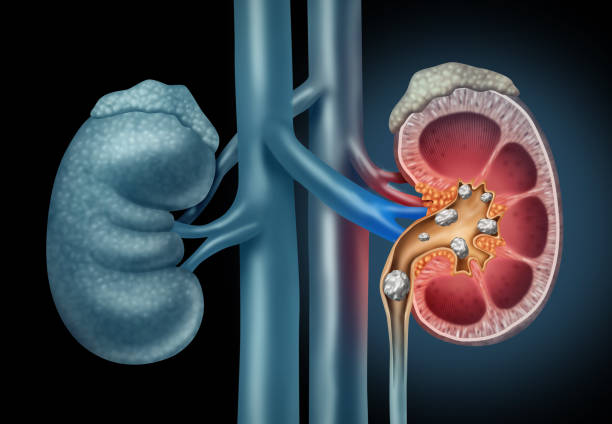When mature turmeric rhizomes are dry crushed, they produce turmeric powder, which is a brilliant yellow powder (underground stems).
Turmeric was used by India’s ancient Vedic civilization to color and taste food as well as for cosmetic and medicinal purposes.
One more spice is not what turmeric is. It is a herb that has been used for countless years in traditional Chinese and Indian medicine because it possesses anti-inflammatory, antibacterial, and antioxidant properties.
You should use turmeric with great caution since it is a highly effective natural treatment, particularly if you have other medical concerns or are taking prescription medication.
Turmeric (curcumin) should not be taken more than 1200 mg per day. Although it has no adverse effects, you shouldn’t use it if you’re expecting or breastfeeding.
You should consume no more than 6 teaspoonfuls of turmeric powder each day since each teaspoon of turmeric contains 200 milligrams of curcumin.
In order for you to discover more about this well-known spice, we’ll concentrate on 10 Serious Side Effects of Turmeric
Read Also: Can I eat Ajinomoto during pregnancy? 5 Side Effects of Ajinomoto
Serious Side Effects of Turmeric
It’s crucial to understand what you’re receiving from your turmeric supplement, particularly in terms of potential adverse effects, as with any drug you put in your body. Ten potential side effects of ingesting too much turmeric are listed below:
1. Potential for Abnormal Bleeding

Blood coagulation has been shown to be slowed down by turmeric, which increases the risk of bleeding and bruising in those with bleeding disorders.
If you are taking any medicines for bleeding disorders or have bleeding disorders, stop taking turmeric. Turmeric may also combine with several drugs to cause excessive bleeding.
2. Digestive issues

Although taking turmeric in large dosages over a lengthy period of time has been reported to induce gastrointestinal difficulties, eating turmeric cooked in curry has not been associated to stomach troubles.
Make sure you just take the suggested dose of turmeric supplement for adults (400 mg to 3 grams), since taking more than that might cause gastrointestinal issues. As well as causing indigestion and heartburn, turmeric.
3. Added Chance of Gallstones and Gallbladder Problems

Oxalate, a chemical that might raise the chance of developing gallstones, is present in considerable amounts in turmeric.
According to a research published in the American Journal of Clinical Nutrition, participants who had taken turmeric had higher amounts of oxalate in their urine than those in the control group.
When turmeric pills of 20–40 mg were administered, there were also reports of more frequent gallbladder spasms. It is advised to stay away from turmeric pills if you have gallbladder problems.
4. Reduces Blood Pressure

High amounts of turmeric may drop blood pressure, and low blood pressure can be harmful. You must use caution while using turmeric if you take blood pressure drugs.
5. Kidney Stone Risk Is Increased

Due to the presence of oxalates, too much turmeric might raise the risk of gallstones as well as kidney stones.
These oxalates have the ability to combine with calcium to create calcium oxalate, an insoluble compound that is primarily responsible for kidney stones.
It is best to stay away from turmeric if you have renal issues since, according to one research, it causes a greater level of urinary oxalate excretion than cinnamon.
6. May affect women who are expecting or nursing moms

While pregnant women may use turmeric as a spice in meals without any problems, they shouldn’t take turmeric supplements.
The potential effects of turmeric on expectant and nursing mothers are currently not well studied, and it is unknown if the active components would cross into breast milk.
7. Nausea and vomiting

Because the curcumin in turmeric may irritate the digestive system, nausea and diarrhea are two symptoms linked to taking turmeric supplements.
If you experience any nausea after taking turmeric, cease using it right once since some individuals might experience it even at modest dosages.
8. Avoid Using Blood Thinners Together

Turmeric’s curcumin has been demonstrated to decrease blood platelet function, thus anyone using blood thinners like Warfarin or Coumadin should avoid it.
9. Could Result in Allergic Reactions

Due to skin contact with turmeric, curcumin has the potential to induce contact allergies, contact dermatitis, and urticaria (hives). Since turmeric and ginger are related, those who are sensitive to ginger are more prone to have a response. Turmeric allergy is possible if you have an allergy to yellow food coloring.
10. May Play a Role in Infertility

Men who use a lot of turmeric pills may have changes in their testosterone levels and sperm mobility, which may result in infertility.
Read Also: Top 10 Foods to boost energy during pregnancy
Benefits of turmeric
Here are a few potential ways turmeric and curcumin may improve your health, keeping that significant restriction in mind.
1. Pain Relief for Arthritis
Due to its anti-inflammatory qualities, curcumin has the potential to be a successful therapy for inflammatory diseases like arthritis.
For instance, a recent small research indicated that individuals with rheumatoid arthritis who took a 500 mg supplement twice daily for eight weeks saw higher reductions in joint soreness and swelling than those who took a prescription anti-inflammatory or a combination of the two medications.
2. Reduce the signs of depression
Lower levels of brain-derived neurotrophic factor (BDNF)[mfn]https://www.frontiersin.org/articles/10.3389/fncel.2019.00363/full[/mfn], a protein in the brain and spinal cord that controls nerve cell communication, have been associated with depression.
According to previous studies, curcumin significantly raised BDNF levels in rats over the course of 10 days. According to a short research, those with severe depressive disorder who took 1,000 mg of curcumin daily for six weeks had comparable gains to those who took an antidepressant or a mix of the two therapies.
In addition to influencing specific neurotransmitters, turmeric has anti-inflammatory effects that may actually lessen inflammation, which in some people may contribute to the onset of depression.
3. Contribute to Diabetes Treatment
Due to turmeric’s anti-inflammatory properties, inflammatory diseases like diabetes may benefit from its use.
According to a review, curcumin may improve insulin sensitivity, reduce high blood sugar levels, and lower high cholesterol in order to avoid type 2 diabetes.
4. Additional Cancer Treatment
According to the American Cancer Society, it is unknown if turmeric can stop the spread of cancer in people. However, a previous analysis found that this spice may have promise because of its antioxidant and anti-inflammatory qualities.
Although further human studies are required, researchers have noted that turmeric, and more especially the compound curcumin, may prevent tumors from developing and progressing to cancer.
5. Encourage skin health
Though further research is required, turmeric may be useful for treating skin disorders including acne, eczema, and psoriasis since it is an anti-inflammatory, antibacterial, and antioxidant-rich spice.
It would probably not be a stand-alone therapy for skin problems because of its limited bioavailability, but rather an addition to current therapies.
How to have Turmeric the right way! (Video):
Conclusion:
Curry powder’s major component, turmeric, is a golden spice that contains plenty of beneficial antioxidants. Too much turmeric may be dangerous, just like too much of any other plant or spice.
Some of the chemicals in turmeric have been proven in studies to bind to iron. This can cause the body’s capacity to absorb iron from diet to decline, which might result in an iron deficit.
The benefits, however, are many. These include treatments for different illnesses as well as palliative care for lesser maladies like the common cold and cough.

